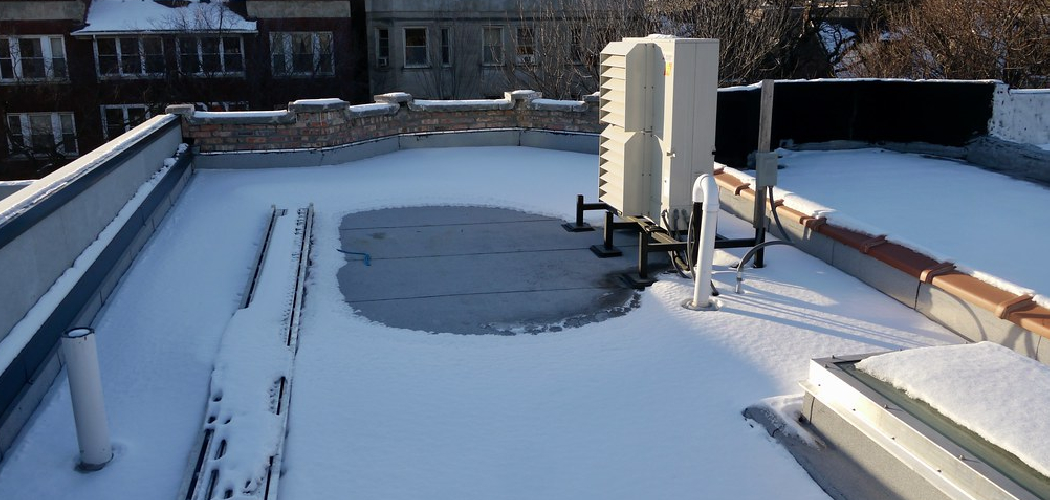Heat pumps are a popular choice for climate control in homes, as they efficiently transfer heat between the indoors and outdoors. However, they can be prone to freezing, especially in colder weather, which can significantly impact their efficiency and lead to costly repairs.
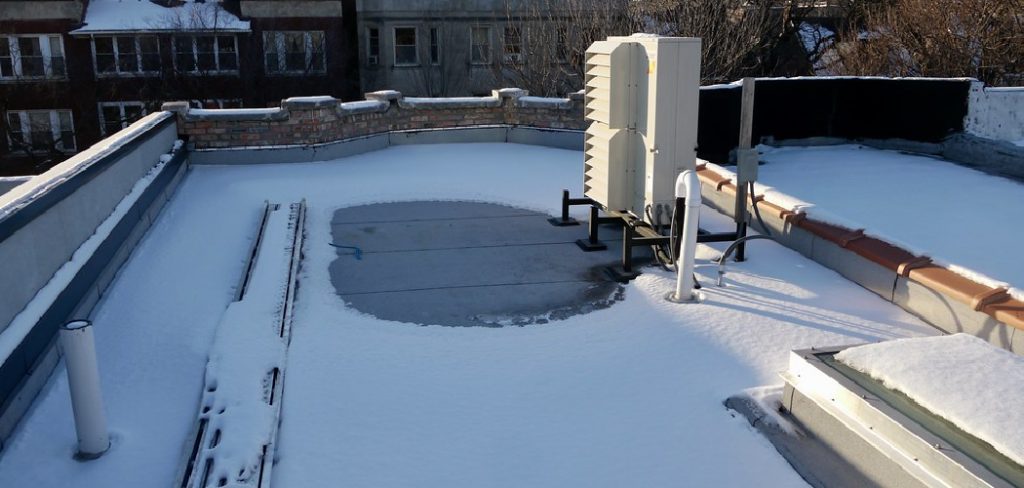
Understanding the common causes of freezing, such as low airflow, refrigerant issues, and adverse weather conditions, is crucial for homeowners.
This article addresses these concerns by providing a comprehensive overview of preventive measures, including maintaining proper airflow, checking refrigerant levels, and ensuring the defrost cycle operates effectively. By implementing these strategies, homeowners can learn how to keep heat pump from freezing, ensuring optimal performance and avoiding potential breakdowns during winter.
Understanding Why Heat Pumps Freeze
How Heat Pumps Work
A heat pump operates by transferring heat between the indoors and outdoors, effectively heating or cooling a space depending on the season. This process relies on the principles of thermodynamics, where a refrigerant circulates through the system, absorbing heat from the air (in heating mode) and releasing it indoors.
The outdoor unit, which contains coils, is crucial for this operation; however, during cold weather, moisture in the air can condense on the coils. When temperatures drop, this moisture can freeze, resulting in a layer of ice that interferes with the heat exchange process.
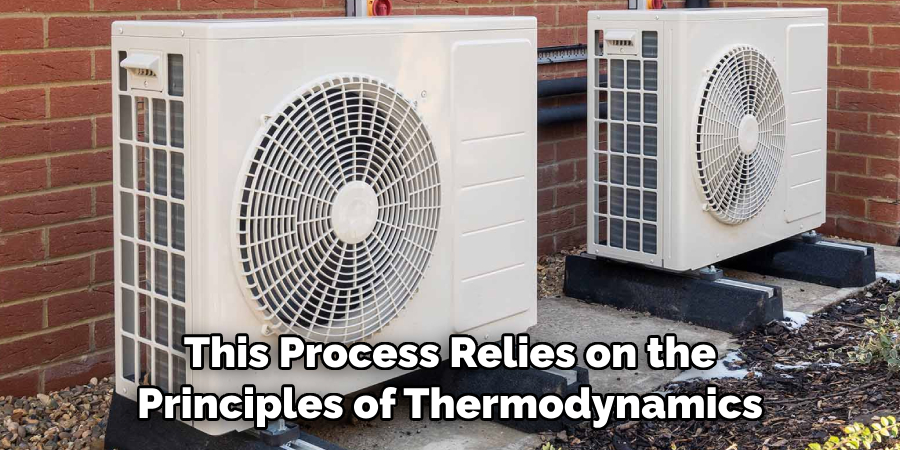
Common Causes of Freezing
Several factors can contribute to a heat pump freezing. One primary cause is low airflow, often resulting from dirty filters, blocked vents, or malfunctioning fans. Restricted airflow reduces the capacity for heat transfer, causing the coils to become excessively cold and accumulate ice.
Additionally, low refrigerant levels can trigger pressure drops within the system. When the refrigerant doesn’t flow adequately, the temperature in the coils can drop, leading to freezing conditions. Lastly, a faulty defrost cycle can prevent the heat pump from effectively thawing itself.
When the defrost system malfunctions, it does not reverse the heat pump’s operation to melt any frost buildup, allowing ice to accumulate and further compromising the unit’s efficiency. Addressing these common issues is essential for maintaining optimal performance and preventing the inconvenience of a frozen heat pump.
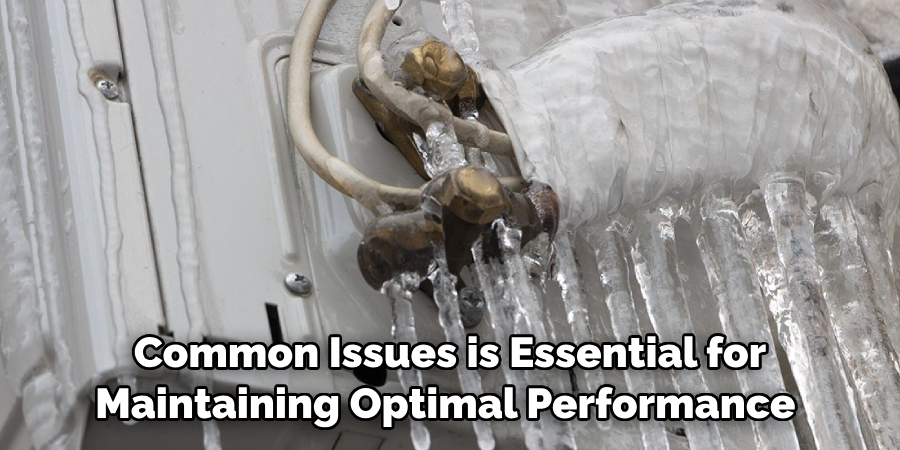
How to Keep Heat Pump from Freezing: Preventive Measures
Step 1: Maintain Proper Airflow
To ensure your heat pump operates efficiently and to prevent freezing, it’s crucial to maintain proper airflow. Start by regularly cleaning or replacing the air filters, as clogged filters can significantly restrict airflow, forcing the heat pump to work harder, which may lead to freezing. It’s advisable to check these filters at least once a month during peak usage seasons.
Additionally, the area around the outdoor unit should be kept free of debris, snow, and ice to promote unobstructed airflow. Regularly inspecting for and removing any obstructions, such as fallen leaves or ice accumulation, is vital. Moreover, trimming back any overgrown vegetation that could potentially block airflow will contribute to the overall efficiency of your heat pump.
Step 2: Check and Maintain Refrigerant Levels
Keeping an eye on your refrigerant levels is essential for optimal heat pump performance and to avoid freezing issues. Low refrigerant signs may include ice on the coils, poor heating performance, or unusual noises emanating from the system. These symptoms can indicate that the heat pump is not functioning correctly and immediate action is required. If you suspect low refrigerant levels, it’s important to call a professional technician.
Handling refrigerants requires specialized knowledge and equipment, thus enlisting the help of a licensed professional will ensure that your system is assessed properly and recharged safely. Regular checks on the refrigerant levels help prevent freezing and enhance the longevity and efficiency of your heat pump.
Step 3: Ensure Proper Defrost Function
The defrost cycle is critical in preventing ice buildup on your heat pump. It works by temporarily reversing the heat pump’s operation to melt any frost that has formed on the outdoor coils. For effective performance, it’s important to check the defrost control settings to ensure the system is programmed correctly.
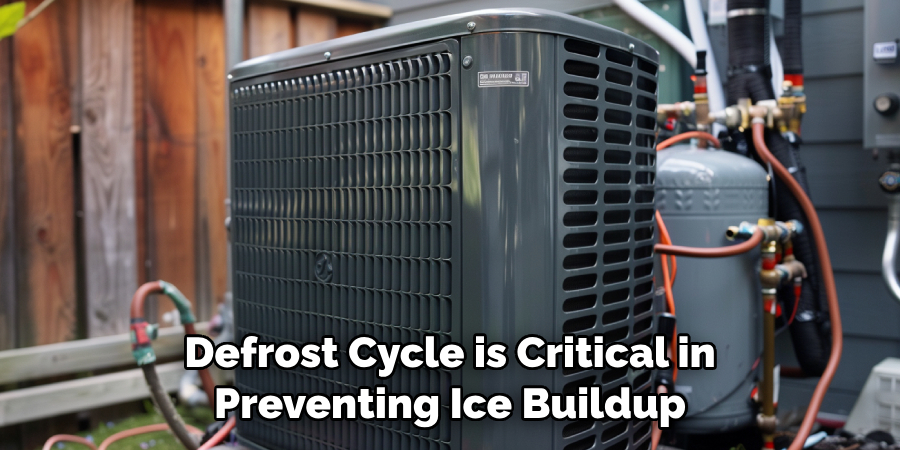
Observe whether the heat pump engages in regular defrost cycles, especially during periods of extreme cold or high humidity, as these conditions can contribute to frost accumulation.
Notice that the defrost cycle isn’t functioning as it should. It may be beneficial to consult a professional technician who can inspect key components such as the defrost sensor, timer, or control board.
Ensuring the proper functioning of the defrost cycle is imperative for maintaining efficiency and preventing freezing during colder months.
Addressing Common Issues that Lead to Freezing
Blocked or Dirty Coils
Regular inspection and cleaning of the outdoor coils is essential to ensure efficient operation and prevent freezing. Begin by turning off the power to the heat pump for safety. Carefully remove any visible debris, such as dirt, leaves, or ice, using a soft brush or cloth.
A garden hose can be used to gently rinse the coils, ensuring that you’re not using high pressure, which could damage the fins. Pay special attention to the area around the coils, ensuring that nothing obstructs airflow. Scheduling this maintenance regularly, especially before winter, can help prevent ice formation due to blocked coils.
Faulty Fan Motors
Malfunctioning fan motors pose a significant risk of reduced airflow, which is pivotal in preventing heat pumps from freezing. These could be signs of a failing fan motor if you notice unusual noises from the outdoor unit, such as grinding or rattling, or observe diminished airflow.
Regularly check if the fan is operating when the heat pump is on; if not, it may require immediate attention. In such cases, it is advisable to call a qualified repair technician. Prompt action can help minimize further damage and ensure that your heat pump maintains optimal airflow.
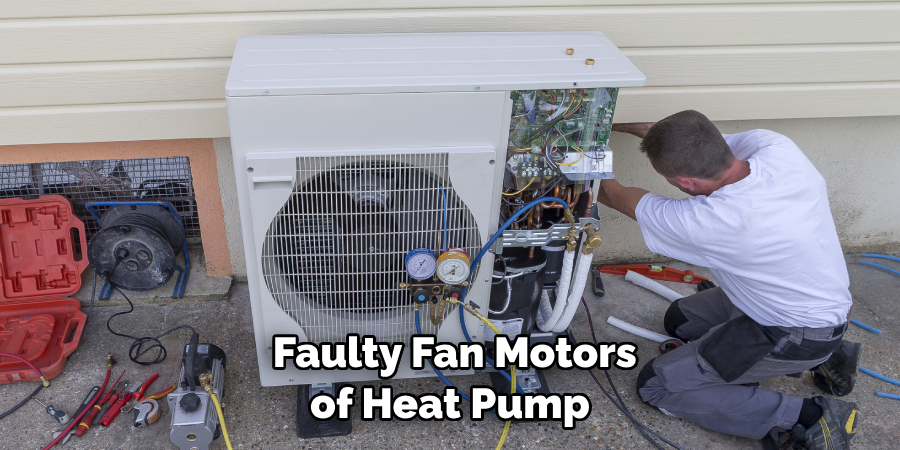
Drainage Problems
Blocked or poorly designed drainage systems can lead to water pooling around the outdoor unit, creating an ideal environment for ice formation. To prevent this issue, regularly check that the drainage channels are clear of debris or mud, which can obstruct water flow.
Ensuring that the system is designed with sufficient slope will assist in proper drainage. Additionally, after heavy snow or rain, inspect for any ice buildup around the unit and clear it as necessary. These preventive measures can help maintain proper drainage and reduce the risk of freezing your heat pump.
Seasonal and Weather-Related Tips
Winter Weather Preparations
Preparing your heat pump for winter is crucial to ensure it continues to operate effectively despite harsh conditions. One effective measure is to install a cover or roof over the outdoor unit, which can protect it from snow and ice accumulation. However, ensuring that the cover does not obstruct airflow is important, as proper ventilation remains essential for optimal performance. Regularly check the space around the unit to make sure it remains clear of any snow or debris.
Use a Backup Heat Source
Heat pumps may struggle to maintain their efficiency during extreme cold spells and could be at risk of freezing. To mitigate this, consider using a backup heat source, such as an electric heater or furnace, to provide additional warmth. This not only ensures a consistent temperature in your home but also relieves some of the workload from your heat pump, contributing to longer-term performance and longevity during the colder months.
When to Seek Professional Help
Persistent Freezing Issues
If your heat pump continues to freeze despite implementing preventive measures, it’s crucial to call a professional technician. Persistent freezing can indicate underlying problems such as refrigerant leaks, electrical issues, or malfunctioning components. These issues require specialized expertise to diagnose and repair properly, ensuring the longevity and efficiency of your system.
Annual Maintenance
Scheduling regular maintenance with a qualified technician is essential for the optimal performance of your heat pump. Annual visits should include comprehensive inspections, cleaning, and tuning of the system, which can effectively prevent freezing and other operational issues. Regular maintenance not only prolongs your heat pump’s life but also helps identify potential problems before they escalate, thus maintaining a comfortable environment in your home year-round.
Investing in professional maintenance can save you from costly repairs and ensure efficient operation for years to come. Additionally, some manufacturers require regular professional maintenance to keep their warranty valid, making it crucial to schedule annual visits with a licensed technician.
Conclusion
In summary, understanding how to keep heat pump from freezing involves several essential preventive measures. Regularly maintaining airflow by cleaning outdoor coils, checking refrigerant levels to prevent freezing, and ensuring the defrost cycle’s proper functioning are crucial.
Additionally, always adhere to safety guidelines by turning off the power before performing any maintenance and seeking professional assistance for complex issues. Persistent problems or unusual noises warrant the expertise of a qualified technician to avoid potential damage to your heat pump or personal injury.
By implementing these strategies, you can ensure your heat pump operates efficiently throughout the winter, providing you with a warm and comfortable home even in the coldest months.

